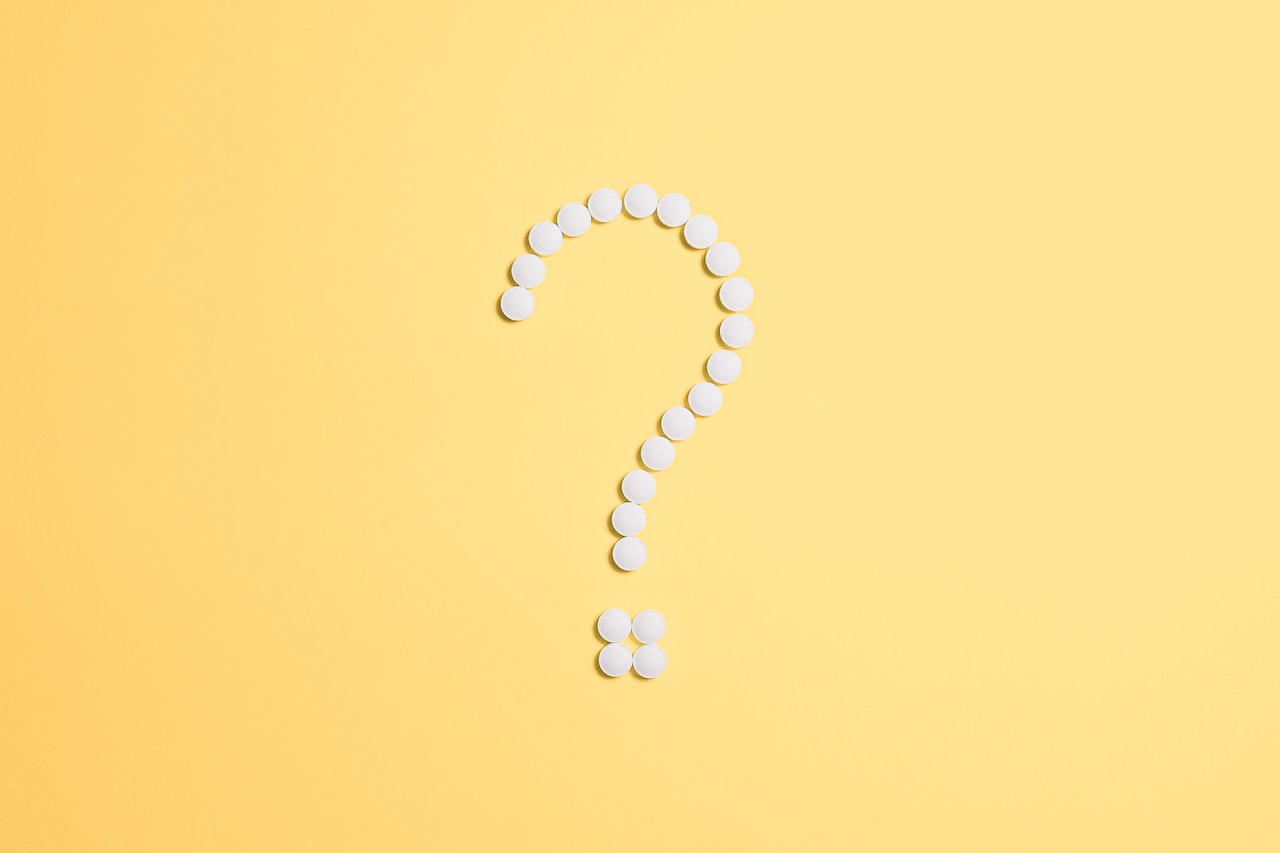Interested in regulating your ADHD but don’t know if prescription ADHD medication is right for you? From pine bark extract to ginseng, herbal remedies are a popular alternative for those exploring non-stimulant medication options.
ADHD medication isn’t for everyone. If you're looking for alternative ways to manage ADHD symptoms, herbal remedies and supplements could prove promising.
Ginkgo biloba is one of those options, but does it really help to regulate ADHD? Let’s dive in.
⚕️ Medical disclaimer: The information and advice published or made available through this website is not intended to replace the services of a physician, nor does it constitute a doctor-patient relationship. Information on this website is provided for informational purposes only and is not a substitute for professional medical advice.
Too long; didn’t read
- Ginkgo biloba is a tree species native to China known for its health benefits.
- Research is ongoing, but ginkgo appears to reduce inflammation and improve heart health, brain function, and eye health.
- Ginkgo biloba shows promising effects for ADHD, potentially improving frustration tolerance and decreasing irritability (more research is needed to develop fuller conclusions).
- Ginkgo biloba can be taken in combination with stimulants like methylphenidate, with one study finding that it helped improve symptoms of inattentiveness.
What is Ginkgo biloba?
Ginkgo biloba—also known as Ginkgo or the maidenhair tree—is a species of tree native to China. Rich in antioxidants, it offers many health benefits, from reducing inflammation to improving heart health, brain function, and eye health.1
Traditional Chinese medicine often uses the ginkgo's leaves and seeds, but modern usage focuses on the ginkgo extract taken from the leaves.
How does Ginkgo work in the body?
Ginkgo biloba contains high levels of flavonoids and terpenoids, compounds with potent antioxidant effects that can neutralize damage from free radicals.1
Free radicals are unstable atoms that can cause damage to cells, resulting in illness and aging.2 They are often produced during the body’s completion of metabolic functions, including food–energy conversion and detoxification.
What health benefits does Ginkgo biloba have?
Though the research is unclear on how ginkgo definitively impacts health, it has been credited with a range of benefits.
Ginkgo nuts are traditionally used for
- Cough
- Fever
- Diarrhea
- Toothache
- Gonorrhea
Now, it is widely sold as a supplement to support brain health. It comes in various forms, including teabags, tablets, capsules, and extracts.
Other Ginkgo biloba uses
- Dementia
- Eye problems, including glaucoma
- Intermittent claudication (leg pain caused by narrowing arteries)
- Tinnitus
- Blood pressure problems
Ginkgo has anti-inflammatory effects, proven by its ability to reduce inflammation in arthritis, inflammatory bowel disease, cancer, heart disease, and stroke patients. It can also improve blood circulation by opening up blood vessels and thinning the blood, credited to high levels of compounds called terpenoids.
Moderate doses are recommended, with potential side effects to be aware of.
Potential side effects of Ginkgo biloba
- Allergic skin reactions
- Constipation
- Dizziness
- Headaches
- Heart palpitations
- Upset stomach
Does Ginkgo biloba help with ADHD?
The research is still relatively young, but what we’ve seen so far from Ginkgo biloba as an herbal remedy or a complementary treatment for ADHD looks promising. However, the results are varied.
Helps with mood and emotions
Do you struggle with emotional dysregulation? Studies show that Ginkgo biloba can positively impact the behavioral and cognitive aspects of ADHD.3 Research predominantly suggests that it has a calming effect, improving frustration tolerance and decreasing irritability.4,5
Ginkgo biloba might improve the effectiveness of ADHD medication
If you’re already taking stimulants, there’s currently no evidence to suggest that you can’t try Ginkgo biloba. Stick to the recommended doses and consult your doctor if taking them with prescribed ADHD medication. If possible, find a practitioner who has experience using herbs.
In fact, a 2015 study observed children and adolescents taking methylphenidate with a supplement of either Ginkgo biloba or a placebo for six weeks.
🔬 The conclusion? The treatment response rate in the group that received methylphenidate and Ginkgo biloba was 93.5%, compared to 58.6% in the placebo group. The herbal remedy largely appears to improve the effectiveness of methylphenidate.3
Improves attention span
However, more research is needed. This particular study recommended a longer observation period. It also concluded that the combination of medications mainly improved symptoms of inattentiveness rather than hyperactivity.
Fewer adverse side effect
Elsewhere, one 2017 study concluded that methylphenidate—a stimulant prescribed to treat ADHD—proved more effective in treating ADHD but that Ginkgo biloba demonstrated fewer adverse side effects.6 The study also found that ginkgo did improve ADHD symptoms, recommending that Ginkgo biloba is more effective when used in combination with methylphenidate.
⚠️💊 Disclaimer: While Ginkgo biloba seems to be safe in combination with stimulant medication, it is known to interact with a lot of medications. Please be sure to consult a medical professional before adding any supplements to your routine.
Other natural herbal remedies for ADHD
Have to steer clear of stimulants? Ginkgo biloba isn’t the only herbal remedy that may help with ADHD symptoms.
Herbal remedies with promising effects:5
- Herbal teas with ingredients like chamomile, spearmint, and lemongrass
- Brahmi, also known as Bacopa monnieri or water hyssop, a wild marsh plant found in India
- Ginseng and red ginseng, herbal remedies used for centuries in China
- Pine bark extract7
Final thoughts: choose your own path
It might be helpful to start an ADHD symptom diary to document your medication journey. Note what you’re taking and when, assessing your symptoms as you go along. That way, you can communicate your symptoms to your medical care provider and help find what’s right for you.
-
Sources
1 Evidence-Based Complementary and Alternative Medicine | A Systematic Review and Meta-Analysis of Ginkgo biloba in Neuropsychiatric Disorders: From Ancient Tradition to Modern-Day Medicine
2 Pharmacognosy Reviews | Free radicals, antioxidants and functional foods: Impact on human health
3 Complementary Therapies in Clinical Practice | Ginkgo biloba in the treatment of attention-deficit/hyperactivity disorder in children and adolescents. A randomized, placebo-controlled, trial
4 BMJ Open | Efficacy and safety of ginkgo preparations for attention deficit hyperactivity disorder: a systematic review protocol
5 Frontiers in Pharmacology | Phytotherapy for Attention Deficit Hyperactivity Disorder (ADHD): A Systematic Review and Meta-analysis
6 PCOM Physician Assistant Studies Student Scholarship | Is Ginkgo Biloba Effective In Managing The Symptoms Of ADHD And Does It Exhibit Lower Adverse Side Effects As Compared To The Current Standard Of Treatment?
7 Phytotherapy Research | Complementary effects of pine bark extract supplementation on inattention, impulsivity, and antioxidative status in children with attention-deficit hyperactivity disorder: A double-blinded randomized placebo-controlled cross-over study







